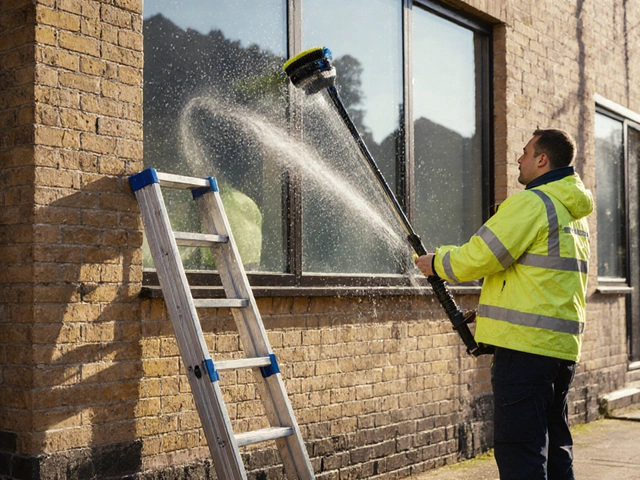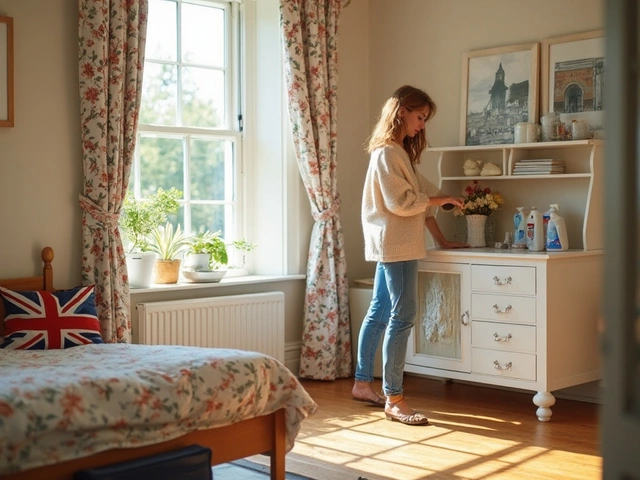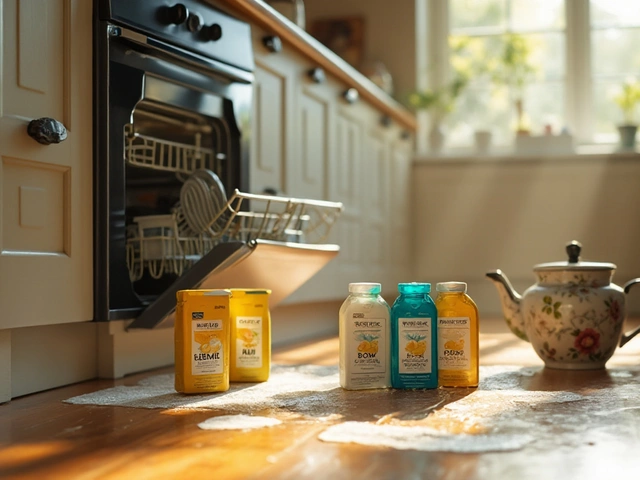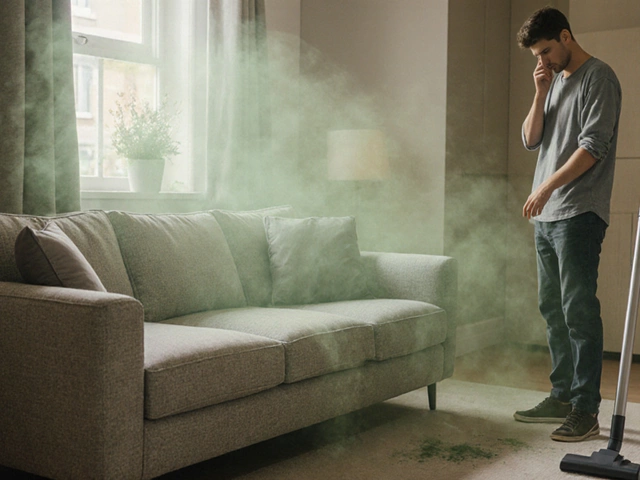Most people give up on the idea before they quote their first driveway. Not because the work is impossible, but because the path looks foggy: what gear, what insurance, how to price, where do the first jobs come from? The truth: starting a pressure washing business in the UK is doable in 2-4 weeks if you follow a simple build-out plan, respect safety, and price with a clear formula.
Pressure washing business is a local service business that cleans exterior surfaces (driveways, patios, walls, roofs, cladding) using pressurised water and detergents. Typical attributes include setup cost (£1,500-£8,000), day rate (£300-£600), production rate (20-60 m²/hour with surface cleaner), and seasonality (peak March-October in the UK).
TL;DR
- Hard? Not really-just structured. Plan gear, legal basics, pricing, and sales. Expect a learning curve for chemicals and surfaces.
- Startup costs: £1.5k-£3k (lean) to £6k-£10k (professional hot water). Break even in 4-10 weeks with steady bookings.
- Legal: Register with HMRC, get public liability (£2m-£5m), write simple RAMS, and follow HSE guidance.
- Pricing: £2-£4/m² for block paving cleaning, +£1-£1.50/m² for re-sanding; minimum job fee £120-£180.
- Sales: Google Business Profile, before/after photos, 20-30 reviews, quick quotes, and upsells (re-sand, seal, gutters).
What “hard” really means in this trade
You don’t need a degree, a big shop, or a massive van. You do need a plan for five things: gear that won’t die mid-job, basic UK compliance, safe working habits, pricing that leaves profit, and a steady trickle of customers. The physical work is honest but manageable with the right tools-rotary surface cleaners carry most of the load. The tricky bits are surface identification (concrete vs. sandstone vs. tarmac), chemical choices, and water management so you don’t flood next door.
Pressure washer is a machine that delivers water at high pressure (typical 130-250 bar / 1,900-3,600 psi) and flow (7-15 LPM). Key attributes: power source (electric/petrol), hot water capability (up to ~90°C), portability (van/trailer), and duty cycle (domestic vs. commercial).
Costs and gear: the setups that actually work
Here are realistic starter kits that don’t leave you stranded after the first three jobs.
- Lean domestic starter (£1.5k-£2.5k): 200-220 bar petrol washer (12-14 LPM), 15-20 m high-pressure hose, 18-20 inch rotary surface cleaner, turbo nozzle, lances, PPE, 25-50L chemical-safe containers, and basic signage.
- Professional cold-water (£3k-£5k): 220-250 bar machine (15 LPM), 30-60 m hose on reel, 20 inch surface cleaner with skirt, downstream injector, water tank (250-500L) if you can legally carry the weight, and decent van racking.
- Professional hot-water (£5k-£10k): 200-220 bar hot box or integrated hot washer (80-90°C), same hose/surface cleaner, better gum removal and winter performance, higher fuel costs but faster dwell and rinse.
Flow rate matters more than headline pressure. On patios and driveways, a 15 LPM machine paired with a 20 inch surface cleaner can double your output compared to a 9 LPM domestic unit. More flow clears slurry fast and reduces striping.
| Type | Pressure (bar/psi) | Flow (LPM) | Mobility | Typical Cost (UK) | Best For | Trade-offs |
|---|---|---|---|---|---|---|
| Electric cold-water | 130-160 / 1,900-2,300 | 7-9 | Easy, light | £200-£500 | Very small patios, bikes, furniture | Slow on driveways; short duty cycle |
| Petrol cold-water | 200-250 / 2,900-3,600 | 12-15 | Van/trailer | £800-£2,000 | Most residential driveways/patios | Noise; fuel vapour; maintenance |
| Petrol hot-water | 200-220 / 2,900-3,200 | 12-15 | Van/trailer (heavier) | £3,000-£6,000 | Grease, gum, winter work | Higher price/weight; fuel cost |
Add-ons that punch above their weight:
- Rotary surface cleaner (18-20 inch): turns jobs from hours to manageable windows and avoids zebra striping.
- Turbo nozzle: blasts stubborn spots; keep it away from soft stone and timber.
- Downstream injector: applies detergents safely at low pressure.
- 30-60 m hose on a reel: reach around a typical UK semi without dragging the machine.
- PPE: waterproof boots with grip, gloves, hearing protection (petrol units), eye protection, RCD for any electric kit.
Sodium hypochlorite is a chlorine-based oxidiser (commonly 10-15% trade strength) used to treat organic growth (algae, lichen) via soft washing or pre/post-treatments. Key attributes: dilution ratio (often 1:4 to 1:10), contact time (5-15 minutes), and neutralisation/rinse requirements to protect plants and surfaces.
Legal, safety, and UK compliance essentials
Keep it simple but watertight. You don’t need a licence to clean, but you do need to register, insure, and work safely.
HM Revenue and Customs (HMRC) is the UK tax authority. As a sole trader you register for Self Assessment (get a UTR) and keep records of income/expenses. Making Tax Digital for Income Tax starts April 2026 for many sole traders, so in 2025 you still file the normal way unless you opt in early.
Companies House is the UK registrar for limited companies. Setting up a limited company gives you limited liability and can help with larger clients. You must file annual accounts and confirmation statements.
Public liability insurance is a policy that covers third‑party property damage or injury. Typical limits: £2m-£5m; useful add‑ons include treatment risks (for chemical use), tools in transit, and employers’ liability if you hire.
Health and Safety Executive (HSE) is the UK regulator for workplace safety. For pressure washing, relevant items include risk assessments, control of substances (chemical handling), noise exposure, slips/trips, and powered equipment safety.
- Register: Sole trader with HMRC (fastest), or form a limited company via Companies House.
- Insurance: Public liability £2m-£5m with treatment risks; employers’ liability if anyone helps for pay.
- RAMS: Create basic risk assessments and method statements-water management, electricity nearby, chemicals, slip hazards, and noise.
- Chemicals: Follow the label, wear PPE, never mix bleach with acids, pre‑wet plants, control runoff into drains.
- Water: Check local water company guidance. Businesses are often exempt from hosepipe bans, but you must avoid polluting surface water drains.
- Noise and hours: Respect local rules and neighbours; plan petrol work during daylight hours.
Pricing that protects your time and profit
Price by surface area with a minimum fee. Use this to stop negotiating against yourself.
- Block paving cleaning: £2-£4 per m²; re‑sanding: +£1-£1.50 per m² (kiln‑dried sand). 25 kg sand covers roughly 15-20 m² after washing.
- Imprinted concrete: £2-£3 per m²; sealing (optional): £6-£10 per m² depending on product and coats.
- Natural stone (sandstone, limestone): often £4-£7 per m² due to care and time; test small, avoid etching.
- Tarmac: usually low pressure + detergent; price per job due to risk.
- Minimum fee: £120-£180 to cover travel, setup, and overheads.
Example quote (typical UK driveway): 60 m² block paving in good condition. Clean at £3/m² = £180. Re‑sand at £1.20/m² = £72. Total £252. On a 15 LPM setup with a 20 inch surface cleaner, expect 2.5-3.5 hours including setup, edging, rinse-down, and sand. Gross revenue per hour: ~£70-£100 before fuel, sand, and tax.
Production rate rule of thumb: cold-water 12 LPM cleans 25-35 m²/hour (flat driveway); 15 LPM cleans 35-50 m²/hour. Add 30-60 minutes for prep, edging, and final rinse. Hot water can cut dwell times and improve gum/grease removal by 30-50%.
Your first month: a clean, repeatable workflow
- Pre‑site check: Identify surface (concrete, block, natural stone, tarmac), pointing condition, drainage paths, delicate areas, power access, and water source.
- Protect and post: Move pots, cover nearby plants if using chemicals, place “slippery surface” sign, plan runoff.
- Pre‑treat (if needed): Apply sodium hypochlorite mix (e.g., 1:5) on algae/black spots; dwell 5-10 minutes; keep it wet; don’t let it hit metals without rinsing.
- Bulk clean: Use rotary surface cleaner in overlapping passes. Avoid lingering on joints. Keep hose management tidy to prevent trips.
- Edge and detail: Swap to fan/turbo nozzle for edges, steps, drains, and stained spots. Rinse windows and doors to remove spray.
- Post‑treat (optional): Light SH mist for persistent lichen on concrete, quick dwell, then low-pressure rinse.
- Re‑sand (block paving): Wait for surface to dry (same day on warm, breezy days), brush in kiln‑dried sand, top up low joints. Explain curing and settling to the client.
- Aftercare: Walk the client through results, note any remaining stains (oil, rust), suggest sealing or a maintenance plan.
Marketing that brings jobs this week
Google Business Profile is a free business listing that shows in local search and Google Maps. Key attributes: verified address/service area, photos, services, hours, and reviews. It’s the fastest path to local leads for trades.
- Launch your Google Business Profile: Add service areas, “pressure washing”, “driveway cleaning”, and “patio cleaning” as services. Post 10+ high‑quality before/after photos this week.
- Collect reviews early: Ask every happy client. Aim for 20-30 reviews in the first 90 days-your lead flow will change overnight.
- Leaflets that don’t get binned: One clear offer, one phone number, one QR to your photos. Drop on streets with visible algae/patio grime.
- Social proof: Post jobs to local Facebook groups and Nextdoor. Never just say “available”-show the transformation and the time taken.
- Website: One-page site with service list, pricing examples, service area map, and quote form. Fast load, real photos, no fluff.
- Quick‑quote script: “What surface is it? Rough size in car spaces or m²? Any black spots or oil? Water tap access? Where are you?” Then give a range and a site visit time.
Safety: the real risks and easy controls
- Injection injuries: Never point the lance at skin. If you get pierced, it’s A&E-high‑pressure water can cause severe tissue damage.
- Electrics: Keep a safe distance from external sockets. Use an RCD with electric machines and check for damage before every job.
- Chemicals: Store sodium hypochlorite upright, ventilated, out of sunlight. Don’t mix with acids. Rinse metals fast. Pre‑wet and post‑rinse plants; keep pets away until dry.
- Slip hazards: Algae+water equals ice-rink. Place signs and control access while the surface is wet.
- Noise and fumes: Petrol engines = ear protection and no enclosed spaces. Never run engines inside garages.
- Manual handling: Hose reels and surface cleaners reduce strain. Lift with legs, not your back.
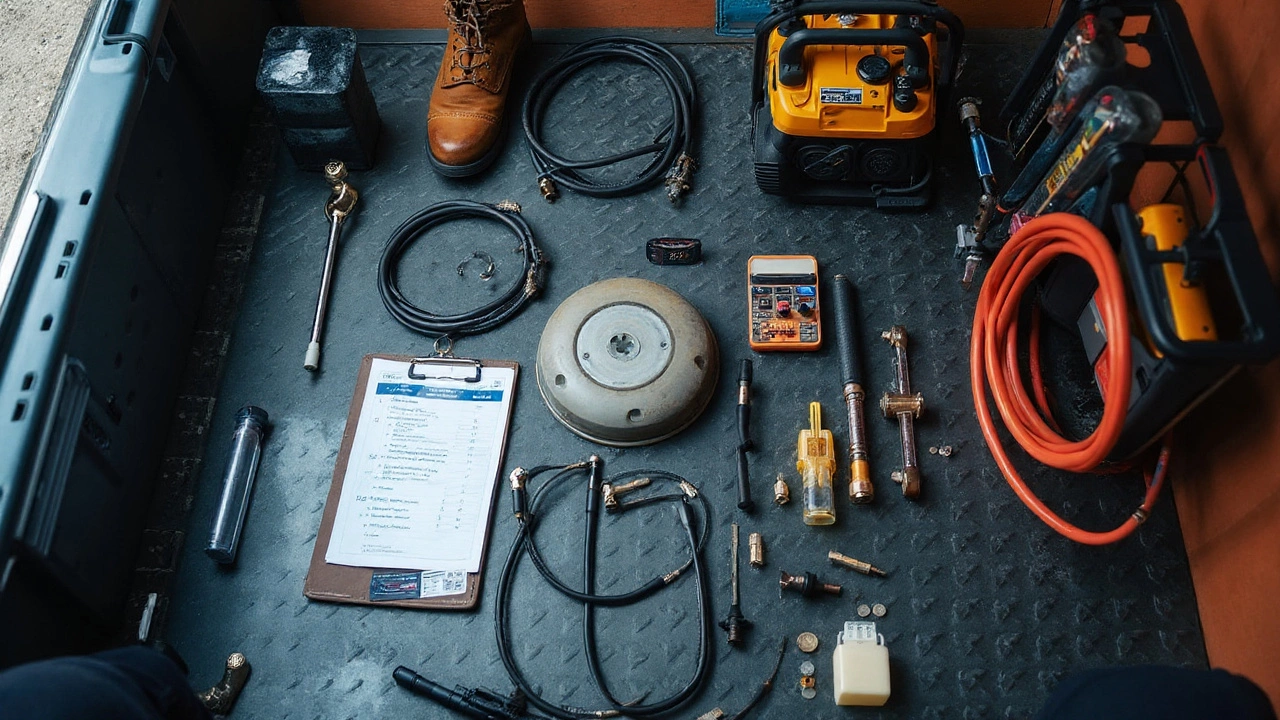
Money model: what you can actually earn
Small operators hitting 3-5 jobs per week at £180-£300 a job can clear £700-£1,500 gross per week in peak season. Subtract fuel (machine + van), consumables (sand, chemicals), insurance, and tax. With efficient routing and good reviews, a solo operator often averages £250-£400/day across a month. Add gutter cleaning, sealing, or soft washing and that can climb.
Seasonality is real. Book more patios and commercial work in late autumn and winter, and add hot-water capability if you want all‑weather income. The smart play: sell maintenance plans-“spring clean + autumn refresh” at a slightly lower per‑visit rate but with guaranteed bookings.
Commercial vs domestic: when to step up
Domestic drives and patios are a great start. Commercial sites (car parks, storefronts, schools) pay more but expect better documentation.
- Requirements: RAMS, method statements, sometimes a CSCS card for construction sites, and higher public liability (often £5m).
- Kit: Hot water speeds gum and grease removal; flat surface cleaners keep stripes off big slabs; signage and barriers matter.
- Admin: Invoices with PO numbers and 30‑day terms-price accordingly.
Related add‑ons that boost average job value
- Soft washing: Lower pressure + chemicals for render and delicate stone.
- Gutter vacuuming: Easy upsell; reduces ladder work; works in winter.
- Sealing: Block paving and imprinted concrete sealing after a dry spell; good margins, weather permitting.
- Roof cleaning: Either scrape and biocide (safer) or specialist setups; check insurance and method carefully.
- Graffiti removal: Solvents and hot water; good commercial niche.
Starter checklists
Lean kit checklist
- Petrol washer 200-250 bar, 12-15 LPM
- 18-20 inch rotary surface cleaner
- Turbo + fan nozzles, lance, trigger gun
- 30 m high-pressure hose on reel
- Downstream injector and chemical-safe hose
- PPE: boots, gloves, eye/ear protection
- Signage: slippery surface
- Consumables: SH, neutraliser/rinse plan, kiln‑dried sand
Compliance checklist
- Register as sole trader with HMRC or form a limited company with Companies House
- Public liability insurance (£2m-£5m) with treatment risks
- Basic RAMS for water, chemicals, trips, electrics
- Method for protecting plants and drains
- Invoice template, quotes with terms (cure times, weather delays)
How hard is it, really? A realistic scale
On a 1-10 scale, starting sits around a 4 if you can follow instructions and you’re happy to learn surfaces. The day‑to‑day sits around a 6 when work stacks up and the weather plays games. Most “hard” moments come from undersized kit, rushing chemicals, and weak marketing. Fix those and you’ll wonder why you didn’t start sooner.
Connected topics to explore next
- Soft washing chemistry: dwell times, surfactants, ratios, plant protection
- Driveway sealing: acrylic vs. polyurethane, anti‑slip, cure times
- Gutter vacuum systems: poles, camera heads, typical ticket sizes
- Van setups: payload limits, water tank baffling, safe transport
- Commercial RAMS and site induction basics
Troubleshooting quick wins
- Black dots remain after cleaning: Pre/post‑treat with SH, longer dwell, soft brush agitation, rinse well.
- Zebra stripes on concrete: Slower, overlapping passes with the surface cleaner; check nozzle size and rotation speed.
- Jointing sand blasts out: Reduce pressure, increase distance, and plan to re‑sand; explain this upfront.
- Rust or battery acid stains: Use a dedicated rust remover (oxalic-based) and spot test on natural stone.
- Water pooling at threshold: Squeegee or wet vac; use sandbags to redirect flow; never flood a neighbour’s property.
Frequently Asked Questions
Is starting a pressure washing business hard without experience?
You can start without trade experience if you follow a structured plan. Learn surfaces, choose a reliable 12-15 LPM petrol machine, practice on your own patio, and keep chemicals simple at first. The steepest learning curve is identifying materials and managing runoff. Book smaller jobs early, and scale to larger driveways and commercial work as your confidence and photos grow.
How much does it cost to start in the UK in 2025?
Budget £1,500-£3,000 for a capable cold‑water setup (petrol washer, surface cleaner, hoses, PPE), marketing (leaflets, basic site), and insurance. A hot‑water system pushes the range to £5,000-£10,000 but isn’t necessary to start. Many new operators break even in 1-2 months with 2-4 jobs per week and a minimum fee of £120-£180.
Do I need a licence to pressure wash in the UK?
There’s no specific “pressure washing licence.” You must register with HMRC (or Companies House if limited), carry public liability insurance, and follow HSE safety guidance. Manage wastewater to avoid polluting drains, respect local water company rules, and write simple RAMS for each job. Some commercial sites will also ask for site inductions and higher insurance limits.
How should I price a driveway cleaning job?
Measure in m² and use a range: £2-£4/m² for block paving cleaning plus £1-£1.50/m² to re‑sand. Set a minimum fee to cover travel and setup. Adjust for heavy lichen (extra dwell/chemical), steep slopes, or tricky access. Provide a clear written quote with what’s included (edges, drains, re‑sand) and any weather dependencies.
Hot water or cold water-what’s better for starting out?
Cold water at 12-15 LPM handles most residential patios and driveways. Hot water speeds up grease and gum removal and helps in winter, but it costs more and adds weight. Start with a solid cold‑water machine and upgrade once your calendar demands it.
Which insurance do I need for pressure washing?
Get public liability insurance (£2m-£5m). Add treatment risks (for chemical work), tools in transit, and employers’ liability if anyone works for you. Some commercial clients will require £5m or more and RAMS before you start.
How do I get my first customers quickly?
Set up a Google Business Profile with real before/after photos, drop leaflets on streets with visible algae, post transformations in local Facebook groups, and ask for reviews after every job. Offer a clear minimum price and fast site visits. A simple one‑page website with photos and pricing examples boosts trust.
What common mistakes should I avoid?
Undersized machines (slow and stripy results), skipping pre‑treatments on algae, blasting soft stone with a turbo nozzle, no plan for runoff, and vague quotes. Also avoid mixing chemicals, over‑promising on oil stains, and working without signage-slip claims are no joke.
Can I work during hosepipe bans?
Business use is often exempt, but you must follow your local water company’s rules and avoid polluting surface water drains. Always check current guidance and consider using client-supplied water, water butts, or a legal portable supply if needed.
What’s a realistic weekly income for a solo operator?
In peak season, £700-£1,500 gross per week is common with 3-5 jobs and a £120-£180 minimum fee. Your net depends on travel efficiency, equipment reliability, reviews (higher close rates), and upsells like re‑sanding and sealing. Winter income is lower unless you add hot water, gutters, or commercial work.
